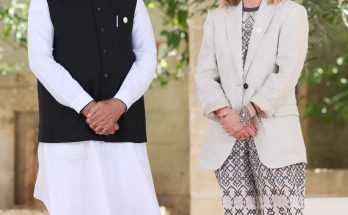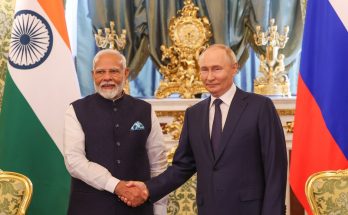Legendary Indian freedom fighter Deshbandhu Chittaranjan Das is not only admired in India, but also has a dedicated following in Bangladesh. C.R. Das, who is better known by the honorific Deshbandhu (‘Friend of the Nation’), has carved a unique place in the hearts and minds of many Bangladeshis, who remember him for his idealism and a soaring vision of national renaissance. It is fitting, therefore, that eight decades after he passed away at a relatively young age of 55, he is being remembered not only in India, but also in Bangladesh.
Deshbandhu was born on November 5, 1870 in Kolkata and died on June 16, 1925 in Darjeeling. Deshbandhu’s family belonged to Telirbag, a village located on the banks of the mighty Padma, in Vikrampur, Dhaka, now part of Munshiganj district. Many consider him to be the second leader after Mahatma Gandhi to have acquired a national stature in the early years of India’s freedom struggle.
Among India’s nationalist leaders, Deshabandhu is one of the most revered leaders in Bangladesh as the man who worked tirelessly for communal harmony. Today many are asking the question; what would have happened had he not died in 1925? Would India still have been partitioned if Deshbandhu had been alive?
Among those who asked this question recently included the eminent columnist of Bangladesh, Syed Badrul Ahsan. In an editorial comment in the Daily Star entitled “Deshbandhu…and what might have been”, Badrul Ahsan says many questions arise while remembering Deshbandhu. He says “beyond and above all that, he was a man steeped in constitutional politics, conscious of the political realities, often coated in complexities that underlined India. That Hindus and Muslims needed to find common ground was a thought he put into clear outline through the Lucknow Pact of 1916. He was one of the earliest of Indian politicians to realise that if Indians meant to have absolute liberty for themselves, they would first need to come together as a nation that defied communal differences that considered India as a homeland for all.”
Paying tribute to Deshbandhu, Badrul Ahsan says “all these years, long after Chittaranjan Das’ life came to a rather sudden end, his words are recalled, his patriotism remains our pride. He would have made a difference had he lived longer. He might and could have held India together, in rainbow colours.”
Badrul Ahsan’s appraisal of Deshbandhu’s legacy is a fair reflection of the high esteem the iconic Indian leader enjoys across intelligentsia and academia in Bangladesh. While the India-Bangadesh relations have had ups and downs, Deshandhu’s appeal has endured, and remains a frame of reference for the larger intellectual unity that exists on the level of idealism in the subcontinent.
Mahatma Gandhi, who led Deshbandhu’s funeral in 1925, memorably underlined the eclectic vision of the man in his well-phrased tribute. “Deshbandhu was one of the greatest of men…He dreamed…His heart knew no difference between Hindus and Mussulmans.’ And here is Maulana Abul Kalam Azad, India’s first education minister and a freedom fighter, on Deshbandhu’s lasting legacy: “His premature death came as a blow to the cause of communal harmony of Bengal and India as well. If he had not died a premature death, he would have created a new atmosphere in the country.”
On the 80th anniversary of Deshbandhu’s death, let’s all re-affirm his soaring vision of communal harmony and nation-building.




